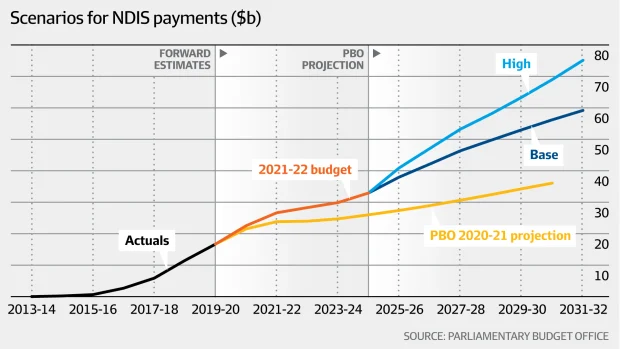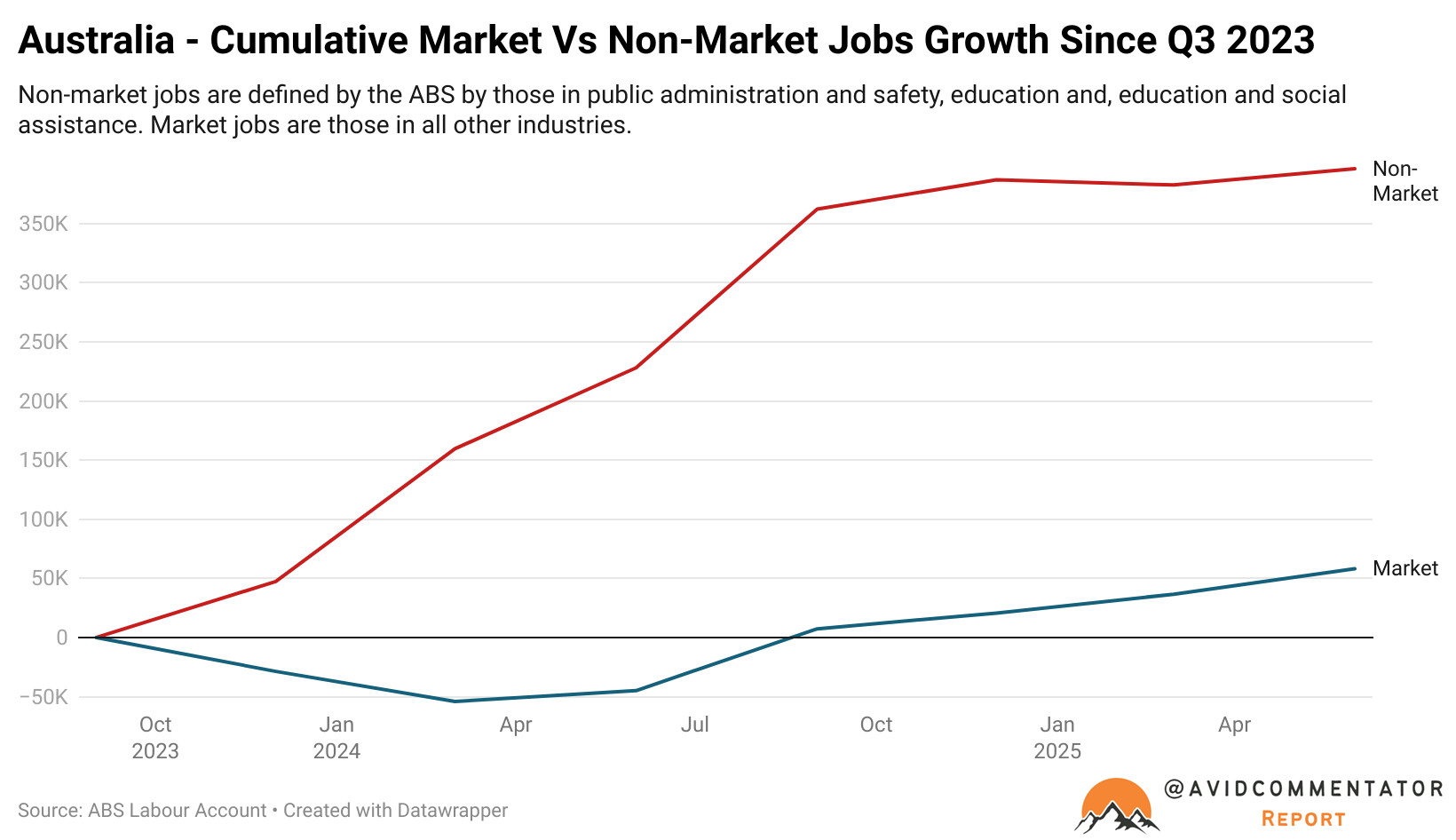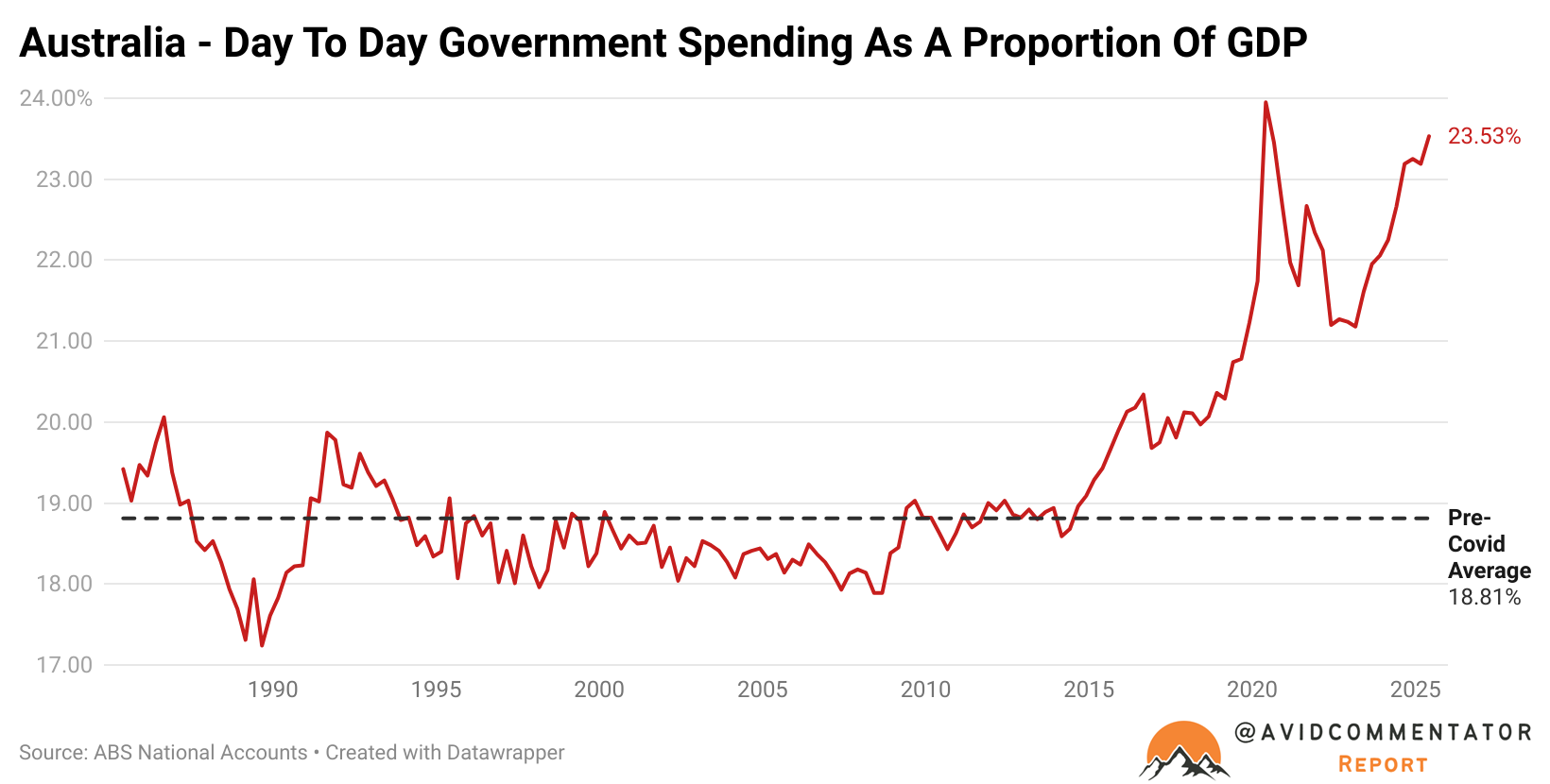Up to 99% of alleged NDIS fraud goes unprosecuted
Recently, a reader shared with me the statistics on the level of prosecutions against fraudsters within the National Disability Insurance Scheme (NDIS).
The internal reporting of the National Disability Insurance Agency (NDIA), the government authority overseeing the scheme, found that in the June quarter of 2024, there were more than 7,000 tip-offs alleging fraud.
Of those over 7,000 allegations, a grand total of 16 or 0.22% had been prosecuted.
As of the latest data from the NDIA, there were again over 7,000 tip-offs alleging fraud during the March quarter of 2025.
In the NDIA report’s own words:
The quality of the tip-offs received continues to be high, enabling faster triaging, assessment, and escalation.
Despite the tip-offs being characterised as high quality, the report revealed a total of 78 active investigations looking into tip-offs not just from the March quarter but overall.
The report went on to state that:
“There are over 14 active cases currently being prosecuted, with a total of 19 offenders before the courts.”
In short, up to 99.78% of allegations of fraud go unprosecuted within the NDIS, despite the fact that the NDIA concluded in a 2023 report that an estimated 6 to 10% of NDIS outlays could be “for non-compliant, fraudulent or incorrect claims.”
Based on the projected NDIS budget for 2025-26 of $52.3 billion, this would put the cost of “for non-compliant, fraudulent or incorrect claims” at between $3.13 billion and $5.23 billion per year.
In an appearance before a Senate committee last year, NDIS Integrity Chief John Dardo stated that internal analysis showed that 90% of plan managers who wrangle funding for up to 100 participants (about 900 of 1540 managers in total) portrayed “significant indicators of fraud”.
Yet despite the widespread reports of “significant indicators of fraud” and over 21,000 tip-offs alleging fraud per year, the number of prosecuted individuals at any given time could still easily be fit on a single minibus.
Dardo went on to state to the Senate committee that:
There was “not sufficient judiciary (capacity) to process the cases we have in the pipeline in the country”.
“Prosecution is not the answer. It’s too late,” Dardo said.
“The end game can’t be prosecution. We’ve got to get to prevention.”
The NDIS is a major driver of economic growth, which is part of the problem.
In the 2020-21 projections by the Parliamentary Budget Office, it was estimated that the cost of the NDIS would reach $36 billion by the 2030-31 financial year.

Less than five years have passed since then, and forecasts indicate that the NDIS will cost more than $50 billion in the 2025-26 financial year.
Meanwhile, in one of his last press interviews before exiting Parliament, former Opposition Leader Bill Shorten made a case that the NDIS was a positive force in the economy.
Shorten made the argument that with over half a million Australians deriving an income from the NDIS, that:
“It is an unsung hero of low unemployment and employment growth over the last decade since its creation.”
“The NDIS employs more people directly than the mining industry,”
While it’s certainly an uncomfortable state of affairs, Shorten is correct that the NDIS has become a major driver of economic activity.
This has particularly been the case since the September quarter of 2023, after which job growth in market sectors of the economy slowed dramatically.

Meanwhile, despite the pandemic being technically over for almost four years, the size of government on a day-to-day basis relative to GDP is now larger than at any other time since records began, with the one exception being the height of the panic during the pandemic, in the June quarter of 2020.

For better or worse, the growth in the NDIS will remain an instrumental element of Australian economic and employment growth going forward, as noted by Bill Shorten.
While reform is deeply necessary, as noted by economists and social assistance experts, it is going to take a great deal of political courage to curtail the growth of the NDIS when it is playing such a pivotal role in keeping the economy afloat.
